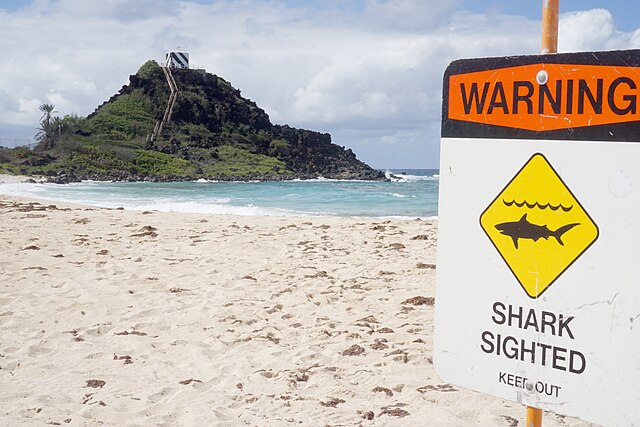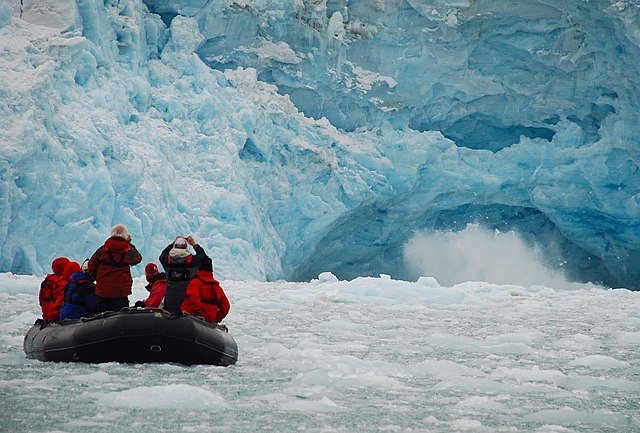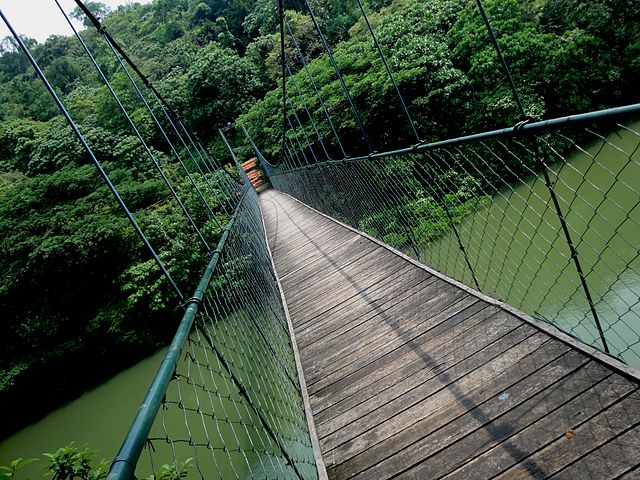Shark tourism is a form of eco-tourism that allows people to dive with sharks in their natural environment. This benefits local shark populations by educating tourists and through funds raised by the shark tourism industry. Communities that previously relied on shark finning to make their livelihoods are able to make a larger profit from diving tours while protecting the local environment. People can get close to the sharks by free- or scuba diving or by entering the water in a protective cage for more aggressive species. Many of these dives are done by private companies and are often baited to ensure shark sightings, a practice which is highly controversial and under review in many areas.
Shark cage diving
Great white shark at Isla Guadalupe, Mexico, August 2006. Animal estimated at 11–12 feet (3.3 to 3.6 m) in length, age unknown.
A sign at Pyramid Rock Beach in Hawaii warning about a shark sighting, 2015
Ecotourism is a form of tourism marketed as "responsible" travel to natural areas, conserving the environment, and improving the well-being of the local people. The stated purpose may be to educate the traveler, to provide funds for ecological conservation, to directly benefit the economic development and political empowerment of local communities, or to foster respect for different cultures and human rights.
Ecotourism in Svalbard.
Seal watching near Malusi Islands in Estonia.
Kikoti Safari Camp in Tarangire National Park, Tanzania.
A hanging bridge in ecotourism area of Thenmala, Kerala in India - India's first planned ecotourism destination







